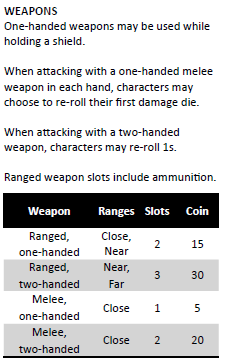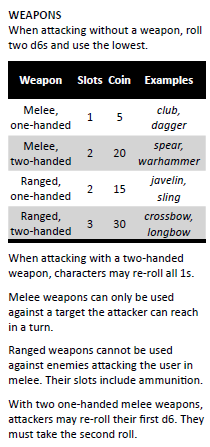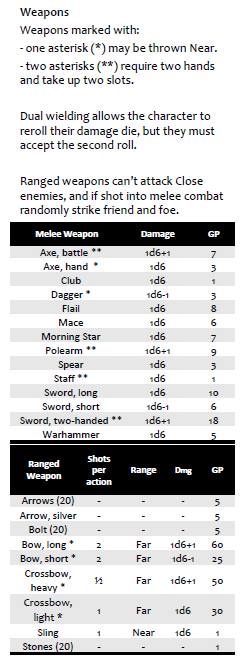I love me a short rulebook. Anything longer than ~30 pages and I start sweating at the thought of having to read and absorb it.
Upon playing through a heartbreaker with family, friends and random internet people, I’ve found it increasingly worthwhile to prune away excessive detail particularly in equipment lists. Saves having to explain what exactly the difference is between banded mail and splint mail is, and I’ve not met many outside of nerd circles who know what brigandine armour is.
I’ve just had a look at how the weapons have changed over the iterations:
version 0.12
version 0.14, doing away with specific names and going for flexible categories instead

version 0.21, realising that you probably don’t need to worry about ranges when the categories themselves are named ‘ranged’ or ‘melee’, and it makes space for examples

Suddenly the in-laws, who are enthusiastic geeky boardgamers but not all that au fait with fantasy vocab, had a solid grasp of what these weapons are and do. And less time has been spent trying to work out the ‘perfect’ weapon, and fewer occasions of people wanting to play axe-wielding berserkers but picking hammers instead because they’re more optimal.



